This post may contain affiliate links and Corporette® may earn commissions for purchases made through links in this post. As an Amazon Associate, I earn from qualifying purchases.
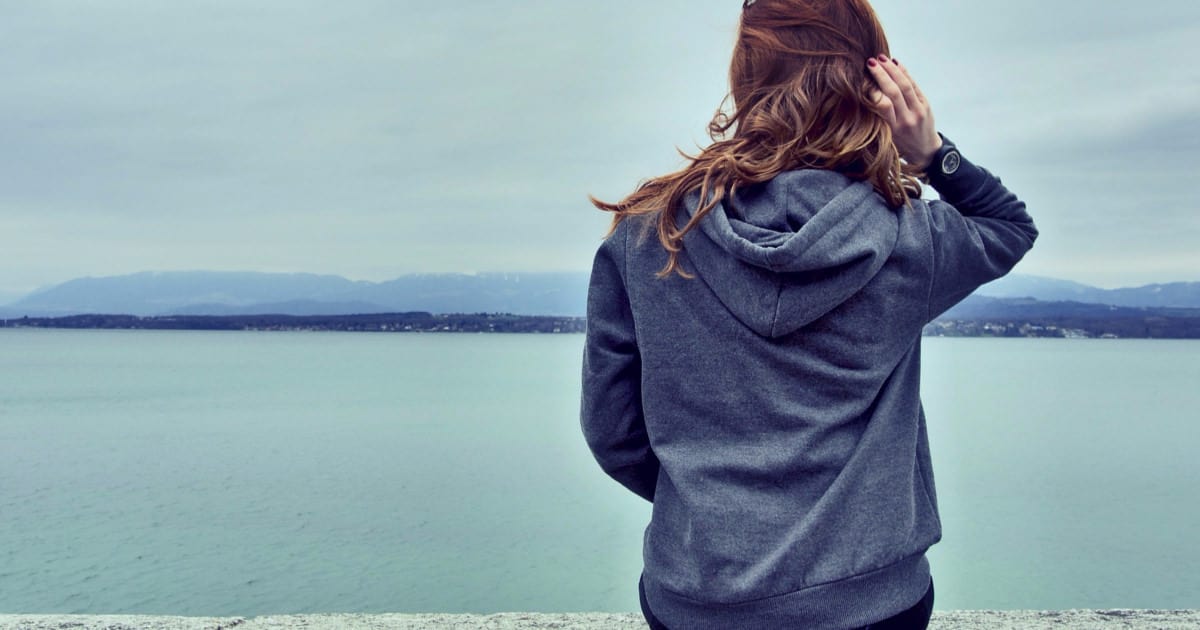
What should you wear to work when you work with some colleagues who dress very casually and very formally — is there some way to build a work wardrobe that straddles the business casual to business formal line? Is there a way to do business casual without being overdressed? Reader A, a young woman who works in Silicon Valley, wonders especially what women should wear to work in Silicon Valley:
I recently started a job at a tech behemoth in Silicon Valley. My work requires me to interface both with Engineers (think shorts, hoodies, flip-flops) and business/sales leaders who dress business casual to formal. As much as I feel comfortable in jeans and t-shirts, I am trying not to stand out from either crowd. Any suggestions on what would be appropriate mid-way options?
Great question, A! We've talked before about business casual for women (we're actually at work on a monster guide to business casual!), offered ideas on how to dress in a male-dominated business casual office, how to be professional in a laid-back office, and how to transition your wardrobe from business formal to business casual or go from business casual to conservative. We've also pondered how to do business casual without looking overdressed, how to do business casual in cold weather, the best summer work clothes for a business casual office, what to wear to a big meeting at a casual office, what to wear to a very casual office, and how to look like a stylish professional in a business casual office — but not in a while, so let's discuss.
{related: The Ultimate Guide to Business Casual for Women}
What to Wear to Work in Silicon Valley: Tips for Women
Some immediate thoughts on what to wear to work in Silicon Valley:
Wear a third piece. Wearing a third piece is a great way to take a basic outfit (jeans + t-shirt, blouse + skirt) and make it more polished without making it fussy, whether it's by adding a statement necklace, a blazer, a scarf, or more.
Mix structured pieces with unstructured ones. Assess your wardrobe currently — what does the mix look like in terms of structured versus unstructured pieces? I think you're going to want both structured pieces — e.g., crisp button-front shirts, blazers, collared sweater jackets, sheath dresses, trousers, skinny pants, pencil skirts — as well as less structured pieces, like loose, boxy shift dresses, flowy cardigans, flippy skirts, five-pocket pant styles (like cords). Depending on the office (know yours!), you may also find a place for long skirts (unstructured), jumpsuits (usually more structured), crisp denim (structured), and possibly even distressed denim (unstructured).
Consider easy ways to “upgrade” or “downgrade” your work attire if you have an important meeting with one group or the other. For example, a classic pair of sleek pumps in a neutral color like black or nude-for-you is going to instantly dress up whatever you're wearing — whereas a clunkier/funkier/more colorful/fun shoe is always going to be seen as more casual and is a good way to “downgrade” your look.
Similarly, keeping something unstructured and comfy like a waterfall cardigan in your office (or my beloved circle cardigan) would be a good way to “downgrade” an outfit; on the flip side adding a blazer or more structured cardigan would be a good way to “upgrade” the look. (You may also want to check out our post on how to transition from a business casual office to a business formal office.)
Dress for yourself — but be predictable. The above advice is all fine if you have a series of meetings or days where you interact with one group or another — but if instead you have a zillion interactions all day with lots of people of different formality, dress for yourself instead.
If you're comfortable in sheath dresses, wear those, with whichever shoe you like best that morning. If you prefer dark rinse denim or other more casual pants, like 5-pocket cords or skinny pants, great — stick with those instead.
Another idea that may be helpful here is to build a capsule wardrobe for work that only includes a few colors — then, whichever end of the business casual-business formal spectrum you happen to be on that day, it feels like it's “A's style.”
Readers, what do you think — what are your best tips on how to dress both business casual and business formal at the same time? What advice would you give Reader A on what women should wear to work in Silicon Valley or other offices that mix business casual and business formal attire?
Specific Ideas on What to Wear to Work in Silicon Valley
Third Pieces to Elevate Denim or Other Basics
Easy Blazers to Wear as Separates
Some of the best blazers for women in 2024 — great for wearing as separates! — include options from Cinq à Sept, J.Crew (collarless and collared), Everlane, and Madewell. Hunting for a deal? Check out J.Crew Factory and Amazon (Cicy Bell, The Drop).

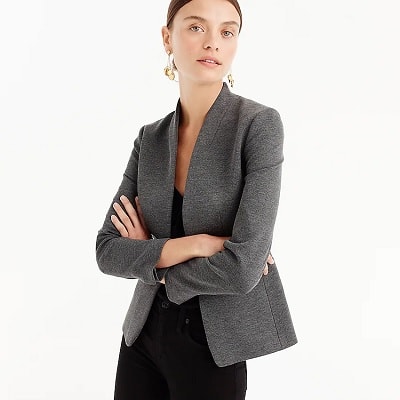
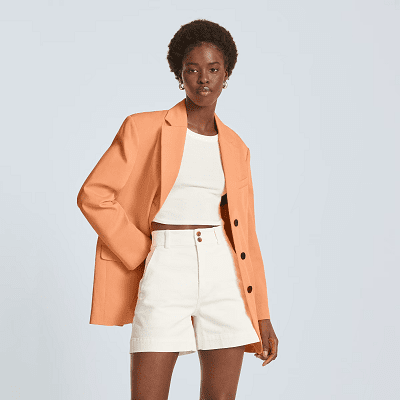
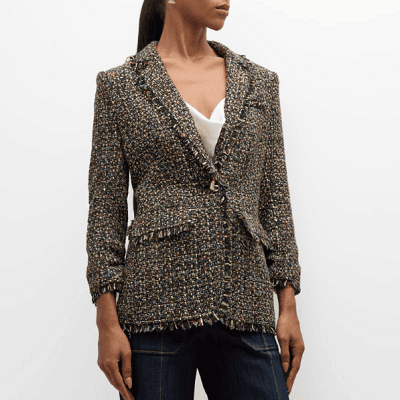
Trendy Chanel-Like Lady Jackets
Some of our latest favorite Chanel-style jackets for work in 2024 include these, but in general check brands like Chanel, St. John, IRO, L'Agence, Sandro, ba&sh, and J.Crew. On the budget side of things, check out Mango and White House Black Market.
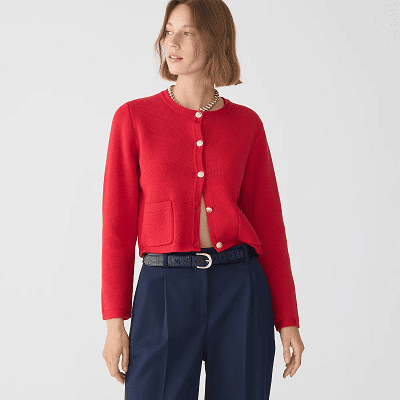
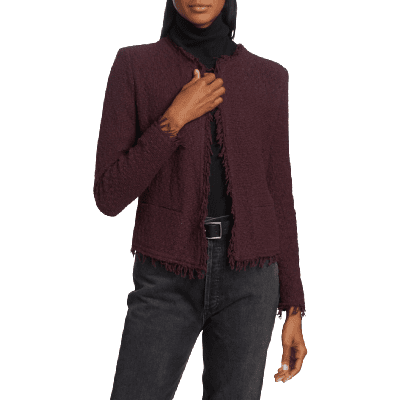
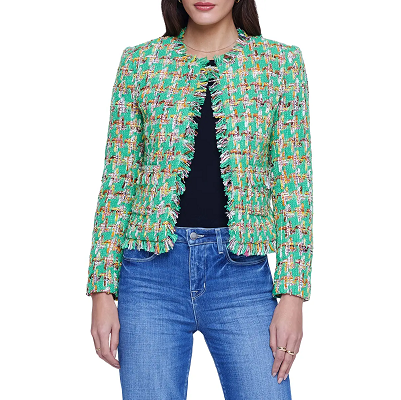
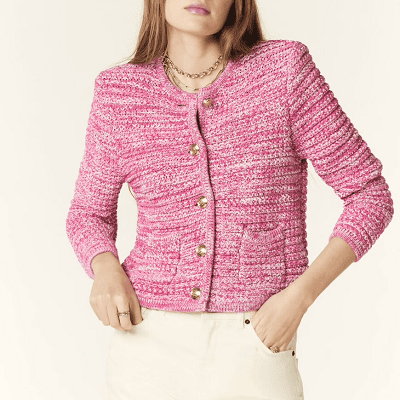
Business Casual Sweater Blazers
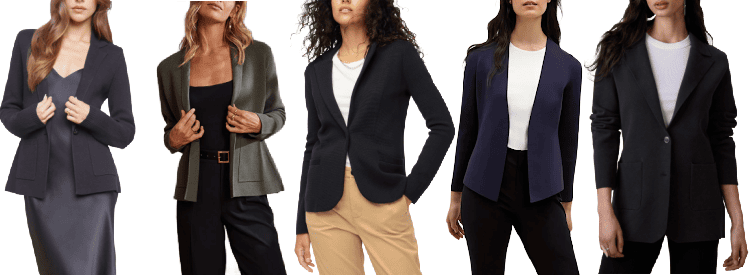
Feminine Blazers
Psst: here are some of our latest favorite feminine blazers as of 2024, all from The Fold… also check out Amazon seller Marycrafts!
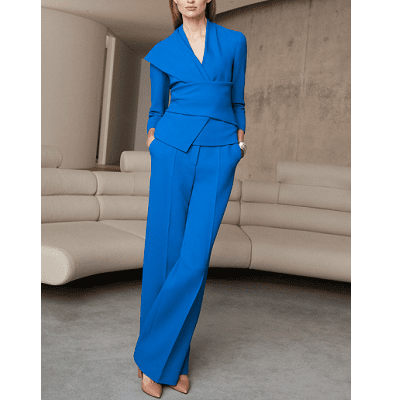
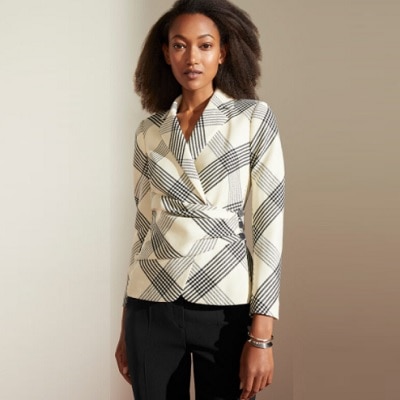
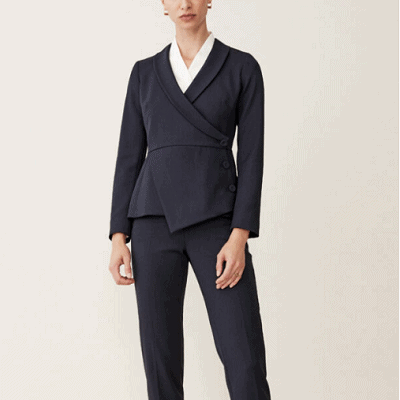
Fun Heels
Some of our latest fun shoes for professional women include these options that we've featured recently… also note that readers have always loved Fluevog shoes; you may also want to check out brands like Kat Maconie and Jeffrey Campbell.
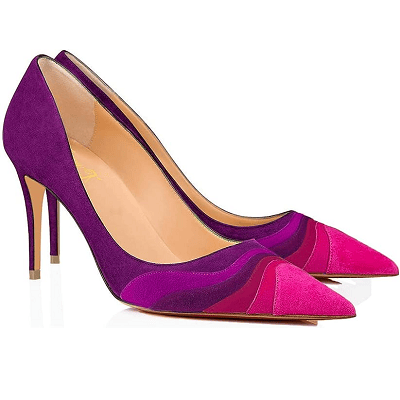
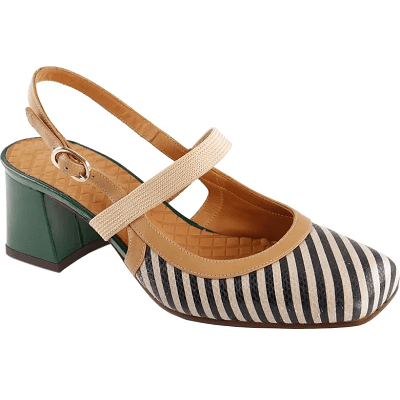
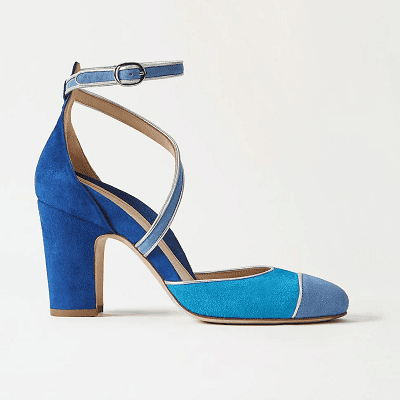
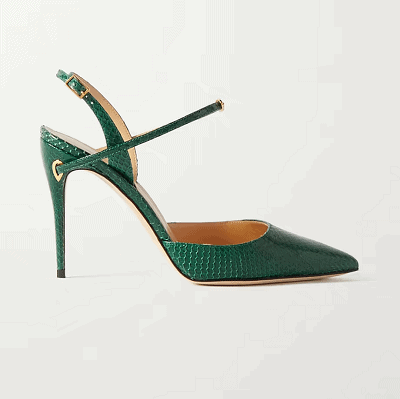
Investment Flats
Our Latest Favorite Denim for Work
Hunting for great jeans for work? As of 2024, our favorites are J.Crew, Veronica Beard, Wit & Wisdom, Levi's, Paige, Madewell, and Topshop — and you might want to check out our recent discussion on how to wear denim trousers!
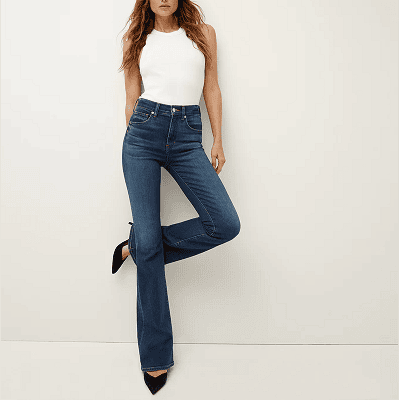
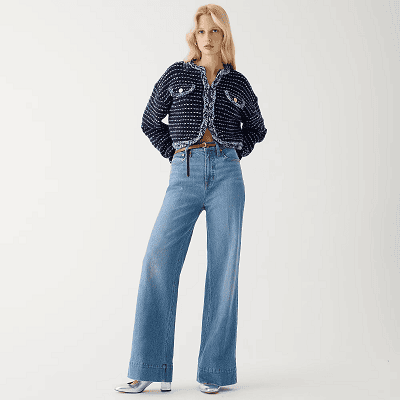
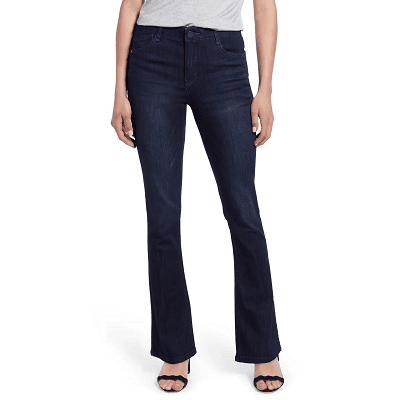
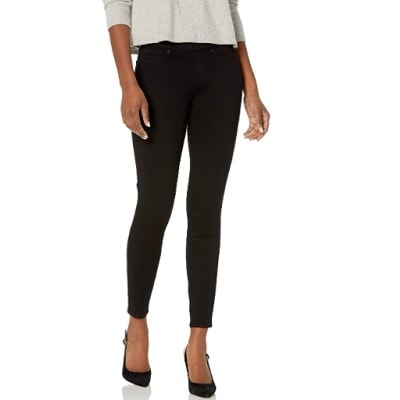
Further Reading on What Women Should Wear to Work in Silicon Valley
We've seen so many interesting stories about women and work attire in Silicon Valley we thought we'd round up a few pieces for further reading:
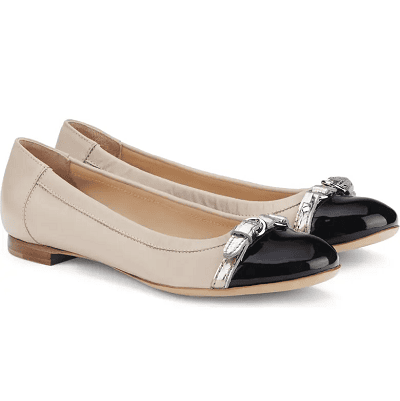
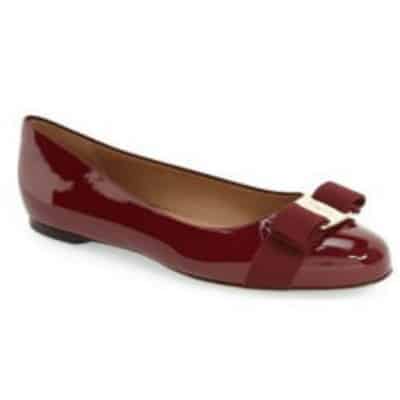
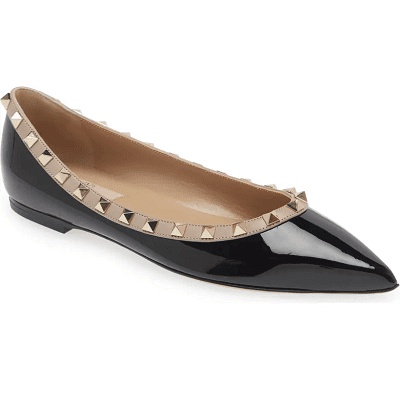
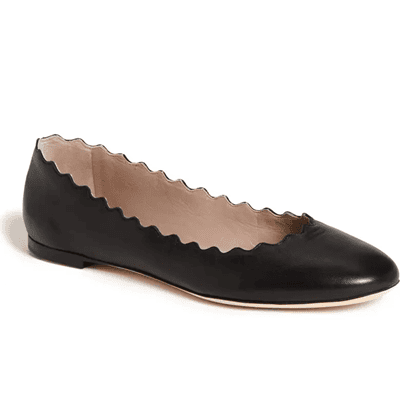

Sydney Bristow
I worked at a place that had a warehouse and office together. The warehouse guys wore casual clothes and the office guys were a mix between casual and business casual. I stuck with business casual (skirt or slacks with various tops and cardigans). I was the only woman though, so I’d stick out no matter what I wore so I went with what worked best for me.
My best friend rotates being in her office with being out in the field for very dirty work. Her solution has been jeans and a top and blazer in the office with flats or heels. When she goes into the field she switches to steel toe boots and swaps the blazer for a fleece or a casual top alone. I think its been working well for her for years.
Ellen
Sometime’s I wish I worked in Silicone Valley. People are so causal there and in NYC we are ALL so formal. I think I could save a FORTUNE on clotheing if I worked on the West Coast. The manageing partner disagrees b/c he thinks that it is clotheing that gets the results I get. I told him it was what was between my ears, not what was hanging on my shoulders that counted. He did agree with that too, so I do NOT know whether he was right or not. FOOEY!
Rosie
One of those articles suggests that if you shop at Ann Taylor, that means you can’t be bothered with fashion. OMG.
Anon
What a great topic! I love the third-piece idea. Curious, though, what peoples’ thoughts are on the risks of over- or under- dressing as a women in a male-dominated field. My instinct is that over-dressing connotes authority at the risk of being alienating whereas under-dressing runs the risk of people not taking you seriously. So I’d err towards authority, being in a male-dominated field. But maybe I’m overlooking something?
AnonZ
I think you’re overlooking the fact that men typically do not have a good handle on levels of formality of women’s clothing. Example: one day a while back I was wearing a sweater, skirt, tights and flat knee high boots. Suddenly had to go to a more formal meeting and said to my colleague, “ugh I feel underdressed”. He said, “Why? You’re wearing a dress, you look fine.”
Hobbs
A thousand +1s to this. Why do men automatically assume a skirt or dress is “dressed up”?
Sydney Bristow
In my experience (in the construction industry) it didn’t matter much. My male coworkers respected me because most of them were good guys and the ones who might not have been quickly realized I was great at my job.
Some customers didn’t take me seriously, but that was my experience regardless of what I was wearing. I won over some regular customers who didn’t take me seriously by again just being good at my job. In one notable case, I not only won over our biggest client (by far!) who never dealt with anyone other than his salesman and the branch manager (but I got the feeling he was even more reluctant to deal with me as a woman). One day they weren’t available and he had an emergency situation. He gave me the message to pass along. I fixed the problem before either person got back and the salesman passed along the info and gave me the credit for it when speaking with the customer. I wound up being the 3rd person our customer would deal with. I never saw the man in person, just saw his employees. Being skilled at the job is what won him over.
kag
I work in male-dominated, casual/business casual office in Europe. My colleagues typically wear shirt+jeans/chinos or T-shirt+jeans. Some wear uncoordinated jackets, some rock athletic attire, shorts, flip flops and horrific combintions of sandals with socks. I dress at the business casual level and wear tons of dresses and skirts. One of my colleagues (actually my mentor), in an alcohol-induced moment of honesty, said that I’m too much put together and it automatically makes him think that I’m less competent. I totally don’t agree with this, but as far as research world is concerned, it’s still a quite common belief that putting a bit of effort into your looks implies putting less effort into your work product. Like, you know, geniuses have greasy hair and shabby clothes.
Anna
This is a common attitude in the sciences. It’s not much of a problem at my current university/department, but at my previous university in California, it was very much the case that female students who put effort into their appearance were regarded as less competent and less committed to science. It may not be fair, but I think this is a fairly common attitude and worth being aware of if you work in male dominated fields like science and engineering.
Anonymous
Sadly, this has been true for me and the majority of my former classmates in a hard science.
Anon
Yes, I saw a stylish brilliant female candidate get blackballed at MIT when she applied for a faculty position. The female professors were the harshest.
Keilexandra
I work on the eng side of Silicon Valley tech, and dressing up for work will definitely get a *woman* treated as less competent than dressing down. (Men can dress up all they want, of course. Sigh.) Sadly it’s important to not look like you work on the “business” side because those people are assumed to have no technical expertise. In many male-dominated fields, it’s very much the case that overdressing will lead to people not taking you seriously. (And the same goes for things like wearing obvious makeup or having “done” hair.)
Torin
My interpretation of business casual that’s easiest for me to understand has long been: cardigan instead of blazer. So wear a suiting skirt or slacks with a suit-appropriate blouse and a cardigan. Statement pieces like jewelry, scarves, and loud/fun shoes optional.
In Reader A’s situation I would swap the suiting skirt/slacks for dark rinse or black jeans, but the other elements would stay the same. This is essentially what I do for “casual Friday” in my business-casual-but-somewhat-culturally-stuffy office.
Anon
My sister is a silicon valley executive. She wears your standard Ann Taylor / Jones New York suits now, but back in the day she mostly wore chino pants – usually not khaki colored, except sometimes required for trade shows along with the company polo shirt (gag) – and feminine blouses or 3/4 sleeve tees. Flat shoes for sure. It always surprised me that she could wear open toe shoes, which were a no-go in my formal finance industry office. She wore sandals in all warm weather, and loved to have a crazy colored pedicure.
L
I worked for an East Coast start-up for several years. I found button ups with nice jeans, with nicer shoes, to be a good uniform for blending in well with all parts of the company. I would have _never_ worn sheath dresses or suiting (even separated separates) unless the Board of Directors were coming to visit–and even then that would have risked being overdressed. It was a uniform that blended in, but helped me feel a bit authoritative, by virtue of being _slightly_ dressier than the rest of the company.
For context, our executives wore button downs with “mom jeans” 95% of the time.
Tech marketing in SV
I’m at a tech start-up that recently became part of a bigger tech company. I previously worked at a design agency that did most of their work for tech companies in SV. I’m pretty much always overdressed in my pencil skirt, heels, dressy blouse, and cardigan. Even jersey dresses tend to be more formal than most of my colleagues. Since I’m in marketing, we tend to dress up a bit anyways, since we end up going to more conferences, being in more pictures, etc. Thus, after a week of seeing me wear sheath dresses or skirts every day, people stopped noticing my clothes. I think the “dress for yourself but be predictable” is the best advice. I work with a lot of the execs in the companies I’ve been with, and I covered the marketing for some major speaking engagements, where the presenter needed to wear business formal attire. No exec hesitated to ask me to come with them to an event, and I fit in at the events because I dressed like the execs. Even in the super casual offices, there were people who didn’t get put on last-minute projects or asked to go to higher level meetings because it was unclear whether they would dress appropriately for the situation (seriously…. there was concern about whether they owned shirts with actual sleeves, closed-toed shoes, and pants that hit the ankles. Men and women blatantly ignored the usual professional dress code norms). I usually wear brighter colors and printed tops, which read more casual than a dark, pinstripe suite. But ultimately, if you can have your self expression with full sleeve tattoos or the latest WoW graphic tee, I can have my self expression with a skirt and heels! The kicker is that I never let my outfit hinder me, so I could do jeans and tennis shoes if I needed to assist on a photoshoot set (crawling around on the ground or lifting things as needed) or assembling a booth, and even in heels, I could walk just as fast as my colleagues. I think the key to being “fitting in” is to be competent in your job, so if you can’t walk in heels or do some of the major components of your job in your preferred attire, then you need to change clothes.
Local Lawyer
Are there some prior threads or resources about deciding to get married? I’m in my early 30s, have been with my partner for a few years, and we live together. I’m fully committed and in love. We’re also compatible in terms of finances, travel, politics, etc.
He’s brought up marriage more seriously recently. Marriage is not important to me. Even if we decide to have kids together. Can folks share some considerations about deciding to get married? Was it good for their relationship in a way that they didn’t expect? I’m concerned that I’m letting my anti-expectations/ establishment tendencies take over the decision making process, but also don’t really understand the benefits if we’re committed and are both financially stable.
anon
I don’t think I’ll be able to articulate it well, but deciding to get married did result in a subtle shift emotionally, even if it doesn’t “look” much different from when we were an unmarried but very committed couple. Getting married solidified that unity and bond. We are Team W. The world recognizes us as Team W, which is pretty powerful. Call us old-fashioned, but that means something to us. In the 13 years we’ve been married, of course there have been ups and downs, but I think marriage gives us a foundation (an extra incentive, if you will) to work through harder times, and to do it in a way that will strengthen our relationship for the long run.
What is your specific concern about getting married? I get the sense you’re not too swayed by emotions, but more by practicalities.
Local Lawyer
The “team” insight is useful.
I don’t have a particular concern, but I don’t have a particular reason to do it. Folks in my family and social circle had a particular catalyst that just isn’t there for me (religion, woman wanted to be a SAHM, woman was otherwise financially insecure, individuals that are afraid the partner would leave them – which I understand is a risk for everyone but marriage doesn’t necessarily take care of that, individuals that feel pressure from their family, woman that for whatever reason really want to have a wedding, etc).
Senior Attorney
The main benefit to being married is that you are legally one another’s next of kin for purposes of inheritance, medical decision-making, and so on. (As well as giving each of you certain rights in the event you split, which may or may not work to your advantage.) You can arrange for that outside of marriage but it takes a bit more effort.
Me personally, I didn’t think I ever wanted to get married (again) until I met the right person. We’ve got some financial things going on at the moment that would seem to indicate we’d have been better off just living together outside of marriage, but to me (only me, YMMV, I don’t have any opinion whatsoever on what anybody else does) it feels special and important and I’m very happy we did it.
LeeB
This. There are hundreds of legal and financial matters you don’t have to deal with if you are married. It is much more complicated if you are not married. Ask a gay couple to tell you the benefits, there is a reason we fought for them.
Anon4This
I’m your age, and understand where you’re coming from. I lived with my now husband for a few years before marriage, and I could have written what you did. But now I feel that being married has solidified “us” to the world. It didn’t happen all at once, but marriage gave a legitimacy to our relationship (to family, co-workers, friends, strangers) that even “fiance” didn’t. Our relationship has changed ever-so-slightly, too. It feels more permanent — we share bank accounts now, we save for “our” retirement. We’re family.
Only you can decide if its right for you, but at the end of the day, you’re still in a good place. You know you want to be with this person here onward — no matter if you are ringless and don’t get to put “The Smiths” on your holiday card. (Some of us married folks don’t do those things anyway.) The point is, I’ve seen at least a few people seemingly make life-long decisions based on the fact that their friends were getting married and having kids, so heck, they should marry the person they are with right now. You know you don’t want to get married just for the party. That’s pretty great. Now you just need to figure out how much marriage means to you and your person. If it means a lot to him, then that may sway you.
California Gal
I’ve worked in Silicon Valley for 20+ years (big-name companies, startups, etc.), & I can’t remember the last time I saw someone in an actual suit. Or women in heels unless they were admins or in marketing. Basically, we wear what we’d wear to brunch to work, from CEO & senior council to engineers — jeans (designer if you like, but 501s if you’re a guy), a sweater in winter / clever T in summer, practical shoes. Don’t overthink it.
Lisa
Yep:). What California Gal said. The more the company depends on difficult technologies, BTW, often the more casual the dress in the office.
Sales visits to the rest of the country though, you still dress for your customer’s culture.
SF in House
My VP level colleague wears flats or boots, jeans, t shirt (graphic or plain), and a relaxed blazer every day. It works for her and her body type. For me, a pear, I tend to do pants and a sweater or blouse. I almost never wear a blazer anymore. My friend shopped my closet when I was about to get rid of most of them and scored!
Silicon Valley Engineer
Jeans and a blazer will work in pretty much any situation in Silicon Valley. Blazers are especially useful for the layering that you’ll need to do to accommodate the differences in temperature that occur around here (especially in San Francisco). Dress it down with a t-shirt, dress it up with a nicer blouse or sweater. Wear fun jewelry or scarves or shoes as you see fit. Mix in some nice sweaters or long-sleeved blouses for variety. You can wear maxi-dresses if you like, although you’ll probably have to explain to some men that, yes, a dress can be casual.
Dressing up is possible if you make it your signature. One of my previous co-workers did “dress-up Mondays” where she wore a nice suit or dress that she’d acquired living on the east coast, and we all knew to expect it. It was the opposite of the east coast’s casual Fridays. Another colleague dresses ultra-feminine, and it’s her trademark. It will still get comments, but most of your everyday colleagues will be fine with it once they get used to it.
California Gal
Yep, there are folks who dress business-formal in the valley, & it’s treated just like those who dress in vintage or punk — it’s cool, it’s their own special quirk. No big deal, but it’s not the norm.
Tech in Texas
I work in tech, but not in SV. Individual contributors here wear jeans and t-shirts, hoodies, exactly what you’d expect. However, the management level is a slight step up — people look off if they’re wearing suits (but some managers still do), but generally the female managers are slightly better dressed. Pencil skirts and jersey dresses are common. My personal wardrobe is dark or black jeans with a silk button down and blazer if I have meetings with other managers, or jeans with a t-shirt and a blazer if I don’t have meetings. Like another commenter said: don’t overthink it.
Sharon
I’m intrigued by Kat’s description of a third piece. To me, a third piece is just that – a cardigan or a casually cut blazer/jacket. I have never heard or thought that a statement necklace or a scarf is a “third piece.” Am I alone?
padi
I worked as a patent attorney for 11 years with start-ups, mid-size, and large institutional clients. I followed the “3rd piece” advice. My jeans were all dark wash without holes. I used to wear heals but ended up wearing a lot of <2 inch wedges and flats. My advice is to save money on shirts, pants, skirts, and dresses but to splurge on jackets, cardigans, and blazers. I don't like fussy necklaces-especially when I have to wear a badge around my neck. So my statement jewelry consisted of rings and earrings.
Anonymous
I suggest following Sheryl Sandberg on social media and also Googling her on Google images. You can see what she wears to work and get ideas there. You will notice that she tends to dress more casually with jeans and cardigans in the office but when she has a meeting outside the office or is publically speaking, she wears a sheath dress.
EB0220
I work at a tech company but regularly meet with sr execs and clients. On a regular day (no meetings) my uniform is skinny jeans (blue or black) + black flats + colorful shirt + black or gray blazer. It feels casual but put together to me. For exec days (internal meetings) and all summer I wear a sheath dress and flats. When a customer gets involved and/or I’m speaking I wear heels with the sheath dress. Blazer over in winter (I hate cardigans). And that’s it!
kk
Sounds pretty similar to mine, I’m in tech in silicon valley, regularly meeting with execs at client sites.
When I’m with a client, I wear a sheath dress. Most of the men I’m with wear suits, no ties. When they put on their ties, I wear a jacket and heels.
Abi
I’ve gone from being an investment banker to a techie in Silicon Valley, and my wardrobe needed an overhaul in the process! My 2 cents on trying to fit between too casual and too formal:
– For tees/sweaters, dress it up by adding a blazer or wearing chinos
– For blouses, dress it down by pairing it with jeans, and adding a sweater/scarf
– Try mixing and matching formal + casual wear e.g. a formal white shirt with a sweater and jeans
On a side note, I’m doing this experiment in which I’m trying to use up my entire banking+casual wardrobe to see how long I last without repeating outfits. I’ve done 6 weeks so far and I can still do atleast 2 more! I’m experimenting with layering, scarves etc. and trying to add some color to every outfit. PM me if you’d like details/ideas :)